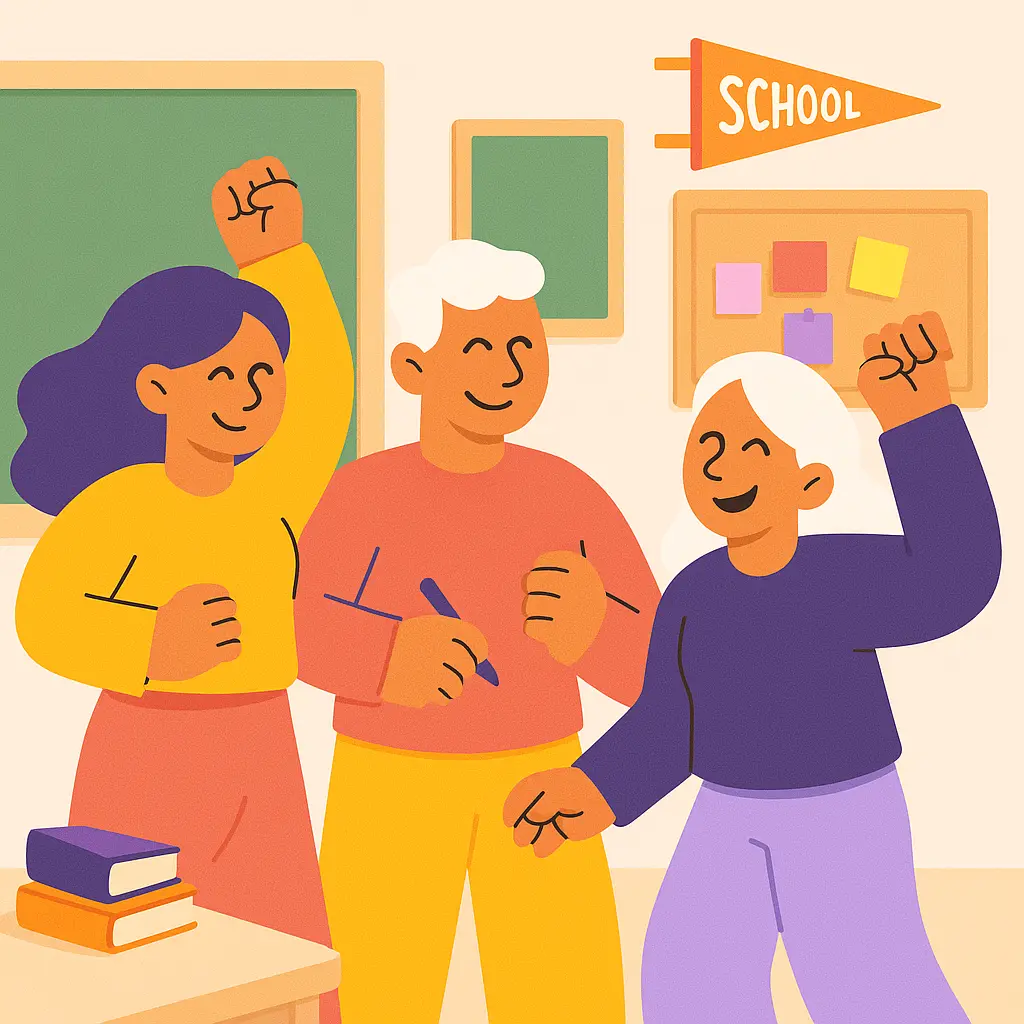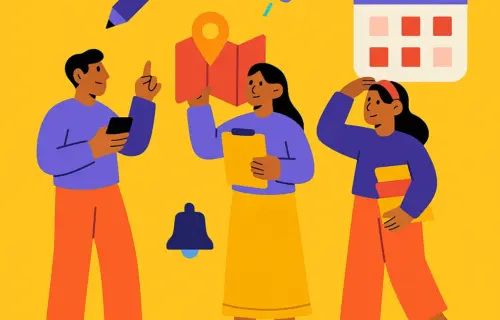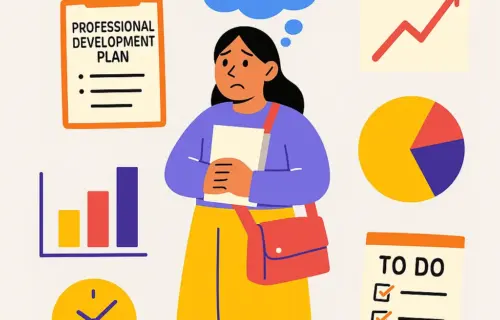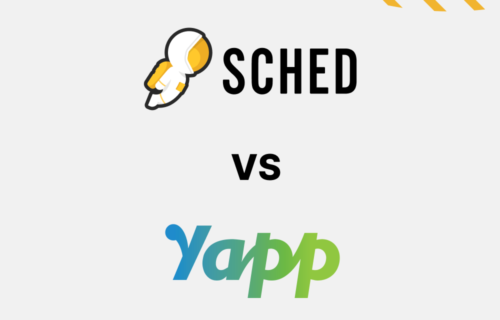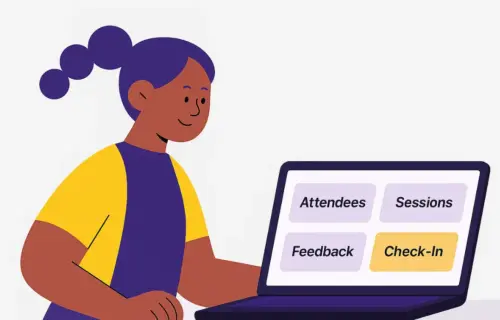You’re booking rooms, chasing RSVPs, managing schedules, and answering questions from every corner of the school. Maybe it’s a PD day. A parent open house. A student showcase. Whatever the event is, the work being done behind the scenes can feel like it never ends.
But here’s the thing: school events are strategic opportunities to help students grow, connect families to learning, support staff development, and move your school closer to its long-term goals.
Let’s look at why events matter and how you can plan them in a way that drives real impact.
Key Takeaways:
Table of contents
- 1 Key Takeaways:
- 2 1. Events Build School Culture and Communities
- 3 2. Events Help Students Build Real-World Skills
- 4 3. Events Support Impactful Staff Development
- 5 4. Great School Events Support Real Progress, Not Just Participation
- 6 Why Great School Events Feel So Hard to Pull Off
- 7 What Happens When You Stop Drowning in the Event Planning Details
- 8 Plan Impactful K-12 School Events With Sched
- School events represent a great opportunity to build community, engage students, and support school goals.
- When planned intentionally, events can strengthen school culture and create lasting impact.
- There are event management tools that can help schools spend less time on logistics and more time on the big-picture purpose of their events.
1. Events Build School Culture and Communities
Remember the last great school event you attended? Maybe it was a multicultural festival where families shared food and stories, or a pep rally that had everyone chanting for the home team. Moments like these create a sense of belonging.
Events like back-to-school nights or parent-teacher conferences get families in the door, making the relationship between home and school stronger.
On the other hand, cultural celebrations can make students feel included and show their heritage is valued. Even something as simple as a talent show lets kids shine and reminds everyone what makes your school special.
2. Events Help Students Build Real-World Skills
Events such as science fairs, club sessions, and school plays are a training ground for students. By participating in school events, they’re developing real-world skills, like:
- Leadership and teamwork
- Public speaking
- Creative expression
More than “nice-to-haves,” these can be life-changing for students. The stakes may feel low, but the learning is real. Events give students a chance to lead projects, collaborate across grade levels, speak in front of an audience, and take pride in their contributions. All of these are skills that directly translate to success in college, careers, and beyond.
They also help students see themselves in new ways: as leaders, creators, and valued members of their school community.
3. Events Support Impactful Staff Development
School events aren’t just for students alone. Professional development days, workshops, and district-wide conferences help recharge your faculty.
When teachers attend well-planned PD, they leave energized, informed, and more equipped to support students. But planning them? It can get tricky.
Nobody becomes a teacher to manage RSVPs or schedule conflicts. But when that’s the reality, even meaningful events can feel draining. That’s why many schools use event planning tools like Sched. You can automate attendee registration and feedback collection, so your planning team can focus on what actually makes the day meaningful.
This is how San Ramon Valley Unified School District brought thousands of educators together for a major professional development event. With Sched, they successfully pulled off sessions across multiple schools, kept complex room scheduling organized, and created a day grounded in community.
4. Great School Events Support Real Progress, Not Just Participation
Think of your school’s big-picture priorities. Chances are, there are a few events that, if well-planned, will support your school’s long-term goals.
- Trying to promote career readiness? Host a career fair with local professionals.
- Focused on inclusion and equity? Plan a diversity week or student-led cultural showcase.
- Want stronger family engagement? Organize a parent open house to share learning strategies and build trust.
That is how events go from “nice” to “necessary.” They can support your school’s long-term goals.
That’s what LAUSD’s Black Child Conference did with an equity-focused event centered around Black student achievement and community connection. With over 3,000 attendees and 80 sessions, it became a model for how mission-driven school events can have lasting impact.
Sched brought it all together: sponsor visibility, personalized schedules, and event updates, all in one easy-to-use platform.
Why Great School Events Feel So Hard to Pull Off
You’re probably thinking: If events are so great, why do they feel like such a slog? Because logistics can be a nightmare and many school teams are stuck doing all the hard parts manually:
- Emailing families with reminders.
- Assigning rooms in spreadsheets.
- Printing updates when schedules change.
- Managing RSVPs in Google Forms.
- Struggling to collect feedback after the fact.
This is why great ideas get dropped, not because they’re unimportant, but because they feel unmanageable.
What Happens When You Stop Drowning in the Event Planning Details
Imagine this: instead of spending hours emailing parents about a back-to-school night, you set up automated reminders in minutes.
Instead of struggling with room assignments for a conference, you let Sched do the heavy lifting.
Sched lets you:
- Build and publish schedules that auto-update across web and mobile.
- Collect speaker proposals, RSVPs, and feedback in one place.
- Send reminders and updates without digging through inboxes.
- Let attendees create personalized schedules (without printing a thing).
Many schools turn to Sched, because it takes care of the messy, repetitive details, so the people leading events can focus on the experience, not the admin work. Plus, it’s free for smaller events, so you can test it out without breaking the bank.
Plan Impactful K-12 School Events With Sched
Yes, school events will always come with details to manage. But they don’t have to feel like one more thing to survive.
When the logistics are handled, you get to focus on what matters: creating experiences that bring your school’s mission to life.
As DCMO BOCES’s learning coordinator shares:
“Sched saved me so much time and work. It let us work smart, not hard. That was huge for us.”
That’s what happens when you stop thinking of events as just another task, and start treating them as strategic tools. With the right approach and support, every event can be more impactful, inclusive, and a lot easier to run.
Ready to make your next school event feel more intentional and less like a survival exercise? Start your free Sched trial and get back to planning with purpose.
